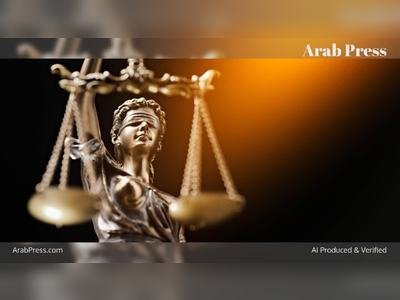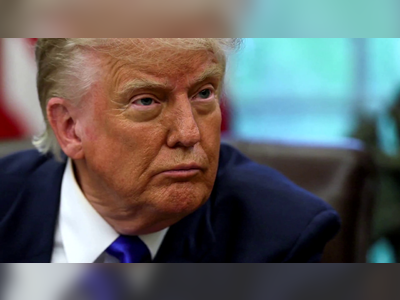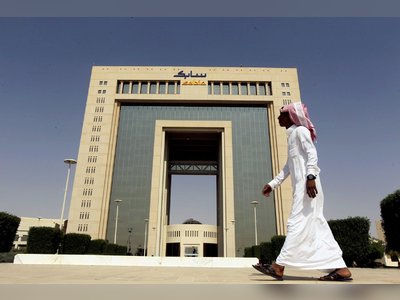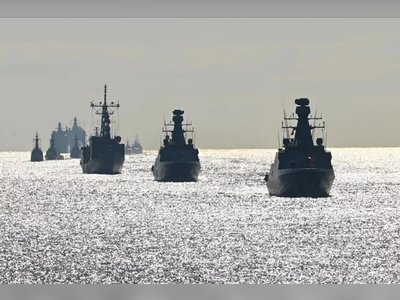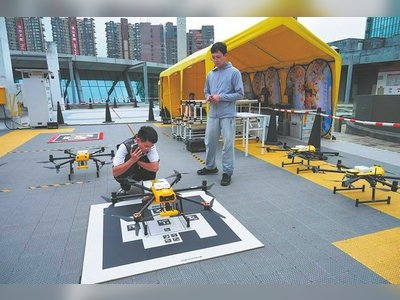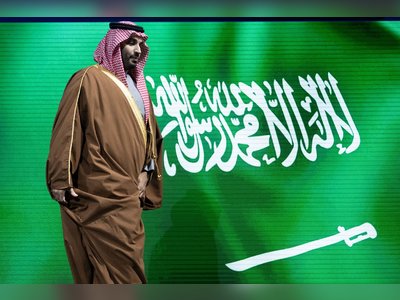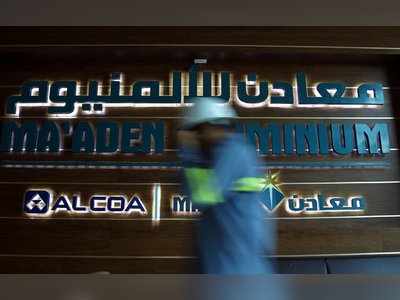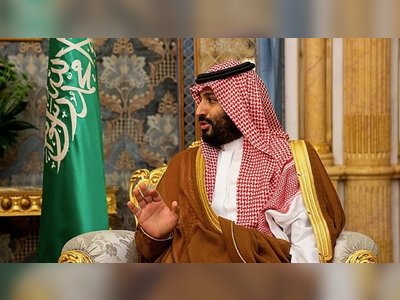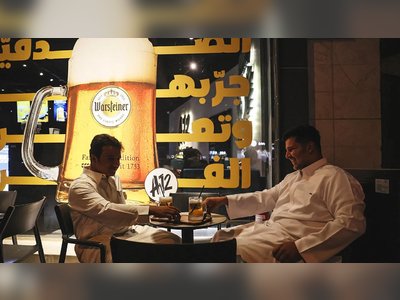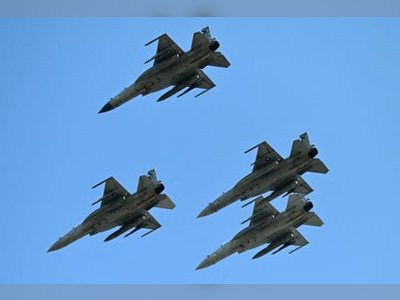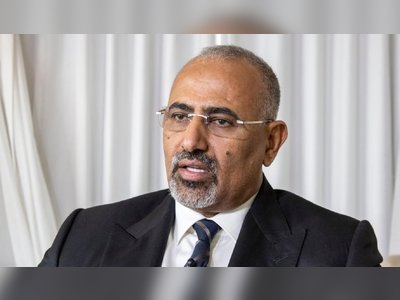
International Ministers Convene in Saudi Arabia to Expedite Aid to New Syrian Government
Representatives from 17 countries gather in Riyadh to discuss aid efforts while maintaining pressure on Syria's transitional leadership.
In a bid to accelerate aid delivery to Syria, ministers from 17 Middle Eastern and Western countries convened in Riyadh, Saudi Arabia, to strategize on providing support to the newly established Syrian government.
This diplomatic gathering underscored the importance of both aiding Syria's transition and urging the interim leadership to honor its commitments towards an inclusive administration representative of Syria’s diverse religious and ethnic landscape.
Set against the backdrop of growing protests in Syria advocating for the west to ease economic sanctions, officials emphasized the urgency of facilitating the return of refugees from Europe and neighboring states.
The U.S. had recently lifted certain restrictions on emergency humanitarian aid and energy supplies, allowing Qatar to dispatch a sea tanker loaded with gas to Syria.
Notably absent from the summit were Russia and Iran, both key players during the reign of former Syrian dictator Bashar al-Assad.
However, Syria's Foreign Minister, Asaad al-Shibani, was in attendance, reflecting Saudi Arabia's aim to assert regional leadership alongside Turkey and Qatar in reconstructing Syria.
Historically, Riyadh and Ankara have supported opposing factions against Assad.
Western diplomats expressed a cautious optimism regarding Syria’s new leader, Ahmed al-Sharaa, head of Hayat Tahrir al-Sham (HTS), acknowledging his pledge for a reform-based government by March.
Yet, there is concern that the unexpected military triumphs of his Islamist group could leave al-Sharaa unprepared to manage the broad consensus required for a democratic transition and the formulation of a new constitution.
In a promising development, al-Sharaa engaged in extensive dialogue with the Syrian National Coalition, once the principal political opposition, signaling potential pathways for cooperation.
Despite these efforts, UN officials project that Syria may require up to three years to draft a new constitution and an additional year to hold elections, timelines extending beyond those outlined in UN Resolution 2254, which governs transitional frameworks.
Concerns remain regarding the Syrian judiciary's composition.
A Western diplomat noted potential legitimacy challenges if judges predominantly hail from Idlib province, HTS's stronghold.
The integration of various military factions and the role of foreign combatants within Syria’s national army also surfaced as critical discussion points.
Qatar has expressed willingness to subsidize salaries for thousands of Alawites who face imminent unemployment, aiming to preclude the emergence of new resistance movements that could thwart the transition.
Comparisons to post-2003 Iraq and the marginalization of Sunni officials cast a long shadow over current policy considerations, underscoring the potential for unrest if not managed judiciously.
International dialogue further touched on the Kurdish-led Syrian Democratic Forces (SDF) and Turkey's continued operations against the group.
Diplomatic circles express unease about Ankara’s actions against the SDF, due to its presence of PKK-affiliated Kurdish separatists.
The balance that Turkey strikes could significantly affect the transitional success or failure of al-Sharaa's administration.
Moreover, Syrian Kurds’ calls for protection by U.S. and French forces against Turkish incursions add complexity to al-Sharaa’s aspirations to unify military operations without permitting regional autonomy that might divert vital oil revenues or foster separatist factions.
Reviewing humanitarian aid policies, the Riyadh meeting reflected on the U.S. easing aid sanctions for half a year and the EU’s plans to follow suit soon.
Germany committed an additional €50 million for essential services, while the EU’s foreign policy chief highlighted the necessity for sanctions reform to facilitate national rebuilding.
The staggering economic requirements for Syria’s recovery, estimated at $500 billion, showcase the immense challenges that lie ahead even if immediate support flows as planned.
During preliminary Arab ministerial meetings before the Western ministers joined, ad hoc assistance measures were discussed, but the designation of HTS as a terrorist group complicates potential financial collaborations.
The issue of lifting HTS's designation awaits resolution from Trump administration, while al-Sharaa vowed to dismantle the organization as a gesture of good faith.
The summit reflects a concerted effort to navigate the intricate dynamics of Syria's post-conflict reconstruction and the balancing act of imposing conditions for aid against the urgent needs on the ground.
This diplomatic gathering underscored the importance of both aiding Syria's transition and urging the interim leadership to honor its commitments towards an inclusive administration representative of Syria’s diverse religious and ethnic landscape.
Set against the backdrop of growing protests in Syria advocating for the west to ease economic sanctions, officials emphasized the urgency of facilitating the return of refugees from Europe and neighboring states.
The U.S. had recently lifted certain restrictions on emergency humanitarian aid and energy supplies, allowing Qatar to dispatch a sea tanker loaded with gas to Syria.
Notably absent from the summit were Russia and Iran, both key players during the reign of former Syrian dictator Bashar al-Assad.
However, Syria's Foreign Minister, Asaad al-Shibani, was in attendance, reflecting Saudi Arabia's aim to assert regional leadership alongside Turkey and Qatar in reconstructing Syria.
Historically, Riyadh and Ankara have supported opposing factions against Assad.
Western diplomats expressed a cautious optimism regarding Syria’s new leader, Ahmed al-Sharaa, head of Hayat Tahrir al-Sham (HTS), acknowledging his pledge for a reform-based government by March.
Yet, there is concern that the unexpected military triumphs of his Islamist group could leave al-Sharaa unprepared to manage the broad consensus required for a democratic transition and the formulation of a new constitution.
In a promising development, al-Sharaa engaged in extensive dialogue with the Syrian National Coalition, once the principal political opposition, signaling potential pathways for cooperation.
Despite these efforts, UN officials project that Syria may require up to three years to draft a new constitution and an additional year to hold elections, timelines extending beyond those outlined in UN Resolution 2254, which governs transitional frameworks.
Concerns remain regarding the Syrian judiciary's composition.
A Western diplomat noted potential legitimacy challenges if judges predominantly hail from Idlib province, HTS's stronghold.
The integration of various military factions and the role of foreign combatants within Syria’s national army also surfaced as critical discussion points.
Qatar has expressed willingness to subsidize salaries for thousands of Alawites who face imminent unemployment, aiming to preclude the emergence of new resistance movements that could thwart the transition.
Comparisons to post-2003 Iraq and the marginalization of Sunni officials cast a long shadow over current policy considerations, underscoring the potential for unrest if not managed judiciously.
International dialogue further touched on the Kurdish-led Syrian Democratic Forces (SDF) and Turkey's continued operations against the group.
Diplomatic circles express unease about Ankara’s actions against the SDF, due to its presence of PKK-affiliated Kurdish separatists.
The balance that Turkey strikes could significantly affect the transitional success or failure of al-Sharaa's administration.
Moreover, Syrian Kurds’ calls for protection by U.S. and French forces against Turkish incursions add complexity to al-Sharaa’s aspirations to unify military operations without permitting regional autonomy that might divert vital oil revenues or foster separatist factions.
Reviewing humanitarian aid policies, the Riyadh meeting reflected on the U.S. easing aid sanctions for half a year and the EU’s plans to follow suit soon.
Germany committed an additional €50 million for essential services, while the EU’s foreign policy chief highlighted the necessity for sanctions reform to facilitate national rebuilding.
The staggering economic requirements for Syria’s recovery, estimated at $500 billion, showcase the immense challenges that lie ahead even if immediate support flows as planned.
During preliminary Arab ministerial meetings before the Western ministers joined, ad hoc assistance measures were discussed, but the designation of HTS as a terrorist group complicates potential financial collaborations.
The issue of lifting HTS's designation awaits resolution from Trump administration, while al-Sharaa vowed to dismantle the organization as a gesture of good faith.
The summit reflects a concerted effort to navigate the intricate dynamics of Syria's post-conflict reconstruction and the balancing act of imposing conditions for aid against the urgent needs on the ground.
